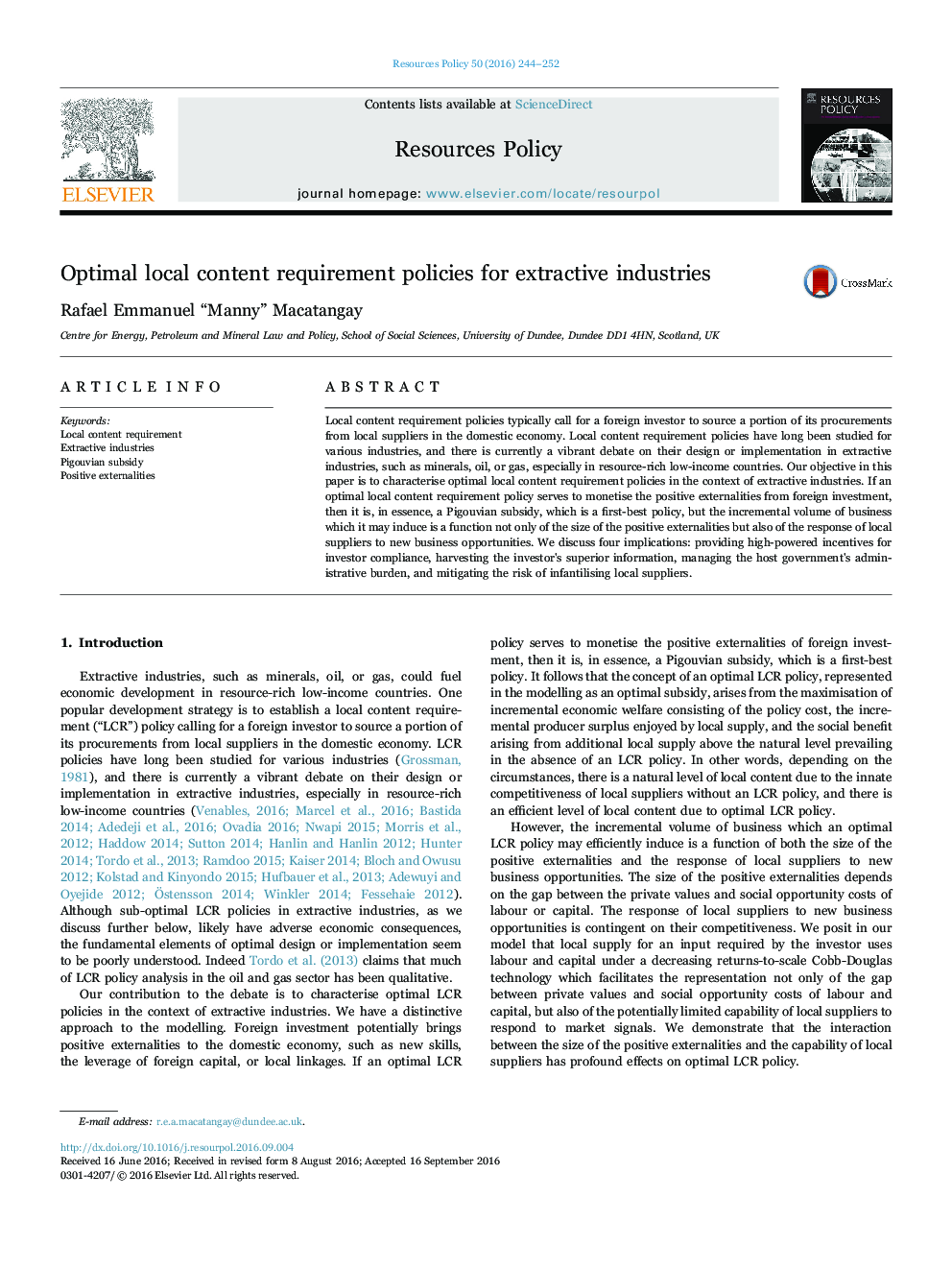| Article ID | Journal | Published Year | Pages | File Type |
|---|---|---|---|---|
| 7387680 | Resources Policy | 2016 | 9 Pages |
Abstract
Local content requirement policies typically call for a foreign investor to source a portion of its procurements from local suppliers in the domestic economy. Local content requirement policies have long been studied for various industries, and there is currently a vibrant debate on their design or implementation in extractive industries, such as minerals, oil, or gas, especially in resource-rich low-income countries. Our objective in this paper is to characterise optimal local content requirement policies in the context of extractive industries. If an optimal local content requirement policy serves to monetise the positive externalities from foreign investment, then it is, in essence, a Pigouvian subsidy, which is a first-best policy, but the incremental volume of business which it may induce is a function not only of the size of the positive externalities but also of the response of local suppliers to new business opportunities. We discuss four implications: providing high-powered incentives for investor compliance, harvesting the investor's superior information, managing the host government's administrative burden, and mitigating the risk of infantilising local suppliers.
Related Topics
Physical Sciences and Engineering
Earth and Planetary Sciences
Economic Geology
Authors
Rafael Emmanuel “Manny” Macatangay,
